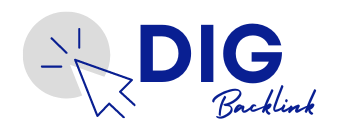When it comes to improving your website’s search engine rankings, SEO is an essential strategy. However, there’s often a debate about which is more important: on-page SEO or off-page SEO. Understanding the differences between these two aspects and how they complement each other can help you develop a more effective SEO strategy. Let’s dive into a comparison of on-page vs. off-page SEO to determine their importance and how they can benefit your website.
Understanding On-Page SEO
On-page SEO refers to the optimization techniques you apply directly to your website to improve its search engine rankings. These strategies focus on enhancing the content and structure of your site to make it more attractive to search engines and users.
Key Components of On-Page SEO:
- Keyword Optimization:
- Incorporate relevant keywords naturally into your content, titles, meta descriptions, and headers to help search engines understand the topic of your pages.
- High-Quality Content:
- Create informative, engaging, and valuable content that meets the needs of your audience. This includes blog posts, articles, infographics, and videos.
- Title Tags and Meta Descriptions:
- Optimize your title tags and meta descriptions to include keywords and provide a clear summary of your content. This can improve click-through rates from search engine results pages (SERPs).
- Internal Linking:
- Use internal links to connect related content on your website. This helps search engines crawl your site more effectively and keeps visitors engaged.
- Mobile Friendliness:
- Ensure your website is responsive and provides a good user experience on all devices, particularly mobile phones.
- Page Speed:
- Optimize your website’s loading speed by compressing images, using browser caching, and minimizing code. Faster pages lead to better user experiences and higher rankings.
Understanding Off-Page SEO
Off-page SEO involves activities that occur outside your website to improve its search engine rankings. These strategies focus on building your site’s reputation and authority through external means.
Key Components of Off-Page SEO:
- Backlinks:
- Acquire high-quality backlinks from reputable websites. These links act as votes of confidence, indicating to search engines that your content is valuable and trustworthy.
- Social Media Engagement:
- Promote your content on social media platforms to increase visibility, drive traffic, and generate backlinks.
- Influencer Outreach:
- Collaborate with influencers and industry experts who can share your content and link back to your website, boosting your credibility and reach.
- Guest Blogging:
- Write guest posts for other reputable blogs in your industry. This not only builds backlinks but also exposes your content to a broader audience.
- Online Directories and Listings:
- Ensure your business is listed in relevant online directories and local listings. This can improve your local SEO and help potential customers find you more easily.
On-Page vs. Off-Page SEO: Which Is More Important?
Determining which aspect of SEO is more important depends on your specific goals and the current state of your website. Both on-page and off-page SEO are crucial for a comprehensive and effective SEO strategy.
On-Page SEO Importance:
- Control: You have complete control over on-page SEO elements, allowing you to make immediate changes and see quicker results.
- Foundation: On-page SEO serves as the foundation for your website’s visibility. Without proper on-page optimization, off-page efforts may not be as effective.
- User Experience: Good on-page SEO improves the user experience, which can lead to higher engagement, lower bounce rates, and better conversion rates.
Off-Page SEO Importance:
- Authority Building: Off-page SEO helps build your website’s authority and credibility, which are essential for higher rankings in competitive niches.
- Referral Traffic: Quality backlinks from reputable sites can drive significant referral traffic to your website.
- Long-Term Results: While off-page SEO can take longer to show results, the benefits are often more sustainable and long-lasting.
Combining On-Page and Off-Page SEO
The most effective SEO strategies involve a combination of both on-page and off-page techniques. Here’s how to integrate them:
- Start with On-Page SEO:
- Ensure your website’s content, structure, and performance are optimized. This creates a strong foundation for your SEO efforts.
- Build High-Quality Content:
- Create content that is not only optimized for keywords but also valuable and shareable. High-quality content is more likely to attract backlinks and social shares.
- Promote Your Content:
- Use social media, influencer outreach, and guest blogging to promote your content and build high-quality backlinks.
- Monitor and Adjust:
- Regularly track your SEO performance using tools like Google Analytics and Search Console. Adjust your strategies based on what’s working and what needs improvement.
Conclusion
In the debate of on-page vs. off-page SEO, the answer isn’t a matter of choosing one over the other but rather integrating both to achieve the best results. On-page SEO lays the groundwork for a well-optimized website, while off-page SEO builds authority and drives external traffic. By understanding and implementing both strategies effectively, you can enhance your site’s visibility, attract more visitors, and ultimately boost your search engine rankings.

